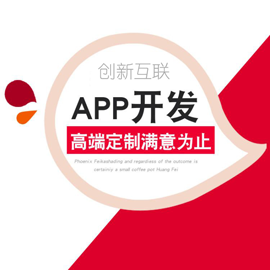如何分析ASP.NETPostback的WebPage生命周期
这篇文章给大家介绍如何分析ASP.NET Postback的Web Page生命周期,内容非常详细,感兴趣的小伙伴们可以参考借鉴,希望对大家能有所帮助。

成都创新互联专注于镇沅网站建设服务及定制,我们拥有丰富的企业做网站经验。 热诚为您提供镇沅营销型网站建设,镇沅网站制作、镇沅网页设计、镇沅网站官网定制、微信小程序开发服务,打造镇沅网络公司原创品牌,更为您提供镇沅网站排名全网营销落地服务。
说道ASP.NET Postback,就得说Web Page生命周期,但是Web Page生命周期却不是三言两语就能够说得清楚的,所以在这里单纯站的编程的角度,撇开Web Page生命周期浅谈Postback。
我们知道,无论是ASP.NET1.x,2.0,甚至是以后的版本,ASP.NET最终Render到Client端通过浏览器浏览的都是一样:一个单纯的HTML。Client通过Submit Form的方式将填入Form的数据提交给Server进行处理。我们现在来看看ASP.NET Postback程序处理的过程。
首先我们通过一个Sample来看ASP.NET如何处理一个通过Click一个Button引起的Postback。下面是Web Page的HTML:
<%@PageLanguage="C#"AutoEventWireup="true"CodeFile="Default.
aspx.cs"Inherits="_Default"%><!DOCTYPEhtmlPUBLIC"-//W3C//DTDXHTML1.0Transitional//EN"
"http://www.w3.org/TR/xhtml1/DTD/xhtml1-transitional.dtd"><htmlxmlnshtmlxmlns="http://www.w3.org/1999/xhtml">
<headrunatheadrunat="server">
<title>TestPage</title>
</head>
<body>
<formidformid="form1"runat="server">
<div>
<asp:Labelrunatasp:Labelrunat="server"ID="LabelMessage"ForeColor="red"></asp:Label>
</div>
<div>
<asp:Buttonrunatasp:Buttonrunat="server"ID="Button1"Text="Button1"OnClick=
"Button1_Click"OnCommand="Button_Command"CommandArgument="Button1"/><asp:Buttonrunatasp:Buttonrunat="server"ID="Button2"Text="Button2"OnClick=
"Button2_Click"OnCommand="Button_Command"CommandArgument="Button2"UseSubmitBehavior="false"/><asp:Buttonrunatasp:Buttonrunat="server"ID="Button3"Text="Button3"OnClick=
"Button3_Click"OnCommand="Button_Command"CommandArgument="Button3"UseSubmitBehavior="false"/></div>
</form>
</body>
</html>
很简单,定义了3个Button,分别注册了他们的两个Event:Click和Command。3个Button的Command Event Hander是一样的:Button_Command,通过指定的CommandArgument来让Event Handler判断到底是哪个Button触发了Command Event。
下面是Code Behind:
usingSystem;
usingSystem.Data;
usingSystem.Configuration;
usingSystem.Web;
usingSystem.Web.Security;
usingSystem.Web.UI;
usingSystem.Web.UI.WebControls;
usingSystem.Web.UI.WebControls.WebParts;
usingSystem.Web.UI.HtmlControls;
publicpartialclass_Default:System.Web.UI.Page
{
protectedvoidPage_Load(objectsender,EventArgse)
{
}
protectedvoidButton1_Click(objectsender,EventArgse)
{
stringstringmessage=string.Format("The{0}eventof{1}isfired","Click","Button1");
this.LabelMessage.Text=message;
}
protectedvoidButton2_Click(objectsender,EventArgse)
{
stringstringmessage=string.Format("The{0}eventof{1}isfired","Click","Button2");
this.LabelMessage.Text=message;
}
protectedvoidButton3_Click(objectsender,EventArgse)
{
stringstringmessage=string.Format("The{0}eventof{1}isfired","Click","Button3");
this.LabelMessage.Text=message;
}
protectedvoidButton_Command(objectsender,CommandEventArgse)
{
stringstringmessage=string.Format("The{0}eventof{1}isfired",
"Command",e.CommandArgument);this.LabelMessage.Text+=";"+message;
}
}
关于如何分析ASP.NET Postback的Web Page生命周期就分享到这里了,希望以上内容可以对大家有一定的帮助,可以学到更多知识。如果觉得文章不错,可以把它分享出去让更多的人看到。
分享标题:如何分析ASP.NETPostback的WebPage生命周期
标题来源:https://www.cdcxhl.com/article18/ijoidp.html
成都网站建设公司_创新互联,为您提供服务器托管、网站策划、App设计、网站导航、标签优化、品牌网站制作
声明:本网站发布的内容(图片、视频和文字)以用户投稿、用户转载内容为主,如果涉及侵权请尽快告知,我们将会在第一时间删除。文章观点不代表本网站立场,如需处理请联系客服。电话:028-86922220;邮箱:631063699@qq.com。内容未经允许不得转载,或转载时需注明来源: 创新互联

- 为何企业钟爱H5响应式网站?html5响应式网站的优势与特点 2021-01-29
- 响应式网站建设有哪些优势?如何成为企业网站升级改版的首选? 2022-05-20
- 响应式网站建设H5如何高效适配 2022-11-10
- 浅析H5响应式网站建设的10大优势 2022-05-11
- 响应式网站建设, 定制下的随心所欲。 2017-08-16
- 9个响应式网站设计测试工具推荐 2021-11-19
- 西安网站建设-完成响应式网站的关联本领 2021-08-28
- 浅谈响应式网站开发 2023-03-19
- 企业为什么一定要建设响应式网站? 2022-05-24
- 响应式网站建设适用于多个终端页面 2016-10-23
- 响应式网站建设购买虚拟主机要注意哪些细节 2020-12-09
- 响应式网站建设需要注意哪些问题? 2020-07-02